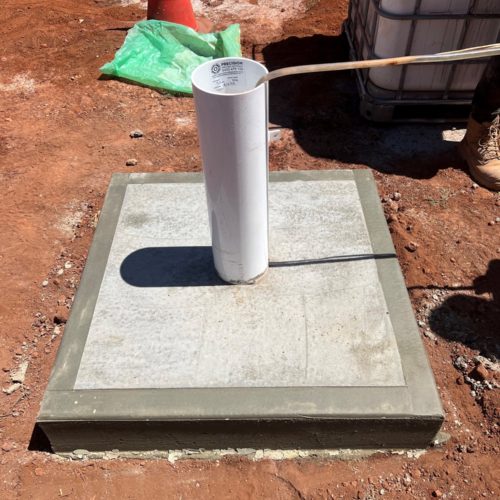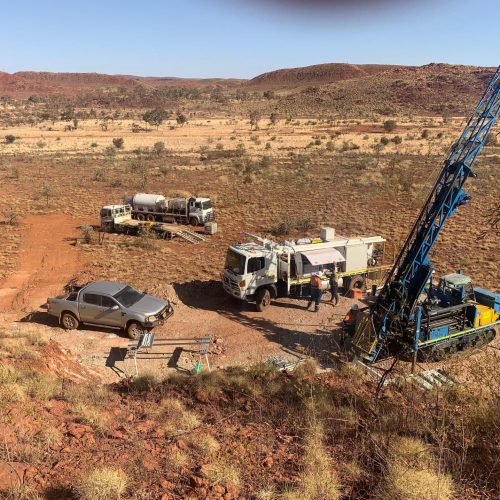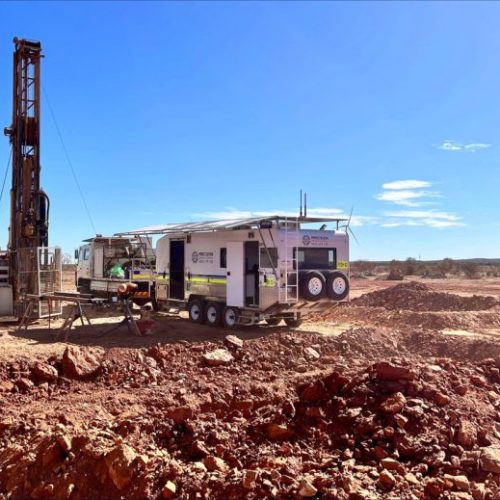Mining operations rely heavily on accurate subsurface data to ensure safety, environmental compliance, and project feasibility. One essential method for gathering this data is through packer testing.
This specialised geotechnical technique allows engineers to assess the permeability of rock formations, groundwater flow, and the stability of underground structures.
In this article, we will explore the vital role that packer test equipment and procedures play in mining operations, from initial site assessments to ongoing operational management.
Understanding Packer Testing in Mining
Packer testing, a fundamental procedure in geotechnical and hydrogeological investigations, involves isolating sections of a borehole to measure how fluid is absorbed or expelled from rock formations. This data is essential for mining companies to evaluate the geological characteristics of a site, helping determine the feasibility and design of a mining project. Testing specific zones within the borehole allows for precise analyses of water injection flow rates and hydraulic conductivity in those zones.
Using advanced packer test equipment, mining engineers can carry out tests to ensure the site’s stability and suitability for various activities, such as drilling or excavation. The insights gained from these tests are crucial for ensuring that mining operations are not compromised by unexpected geological or hydrological issues.
Key Components of Packer Test Equipment: Packer Inflation
The accuracy of a packer test procedure depends largely on the quality of the equipment used. Packer test equipment typically includes inflatable packers, which are inserted into a borehole and inflated to isolate specific sections. This allows engineers to measure the permeability of these isolated sections, gaining a clear understanding of how water or air moves through the rock formations.
High-quality packers are designed to handle a range of geological conditions, ensuring that they can adapt to different environments, from soft sedimentary rock to more solid formations. Modern packer test equipment also includes data logging and pressure measurement systems, which allow for precise and reliable data collection, reducing the margin for error during the testing process.
The Packer Test Procedure to Determine Hydraulic Conductivity in Mining
A typical packer test procedure involves several steps, each designed to ensure accuracy and reliability in the data collected. The process usually begins with drilling a borehole to the desired depth. Once the hole is prepared, deployed packer equipment is inserted and expanded to isolate the target section. The test involves isolating a specific section of the borehole using inflatable packers to conduct controlled tests.
Water or air is then pumped into the borehole, and the rate at which it is absorbed or expelled is measured using the packer’s pressure sensors. This information is critical for understanding groundwater flow and the permeability of the surrounding rock. In mining operations, this data can be used to assess the risk of water ingress into tunnels or shafts, evaluate the stability of underground structures, and determine the best extraction methods for a particular site. Additionally, the data helps determine hydraulic conductivity, which is essential for evaluating the permeability of geological formations.
Hydraulic Conductivity and Packer Testing in Mining
Hydraulic conductivity is a critical parameter in mining operations, as it determines the ease with which water can move through rock formations and soil. Understanding this property is essential for assessing groundwater flow and identifying potential contamination pathways. Packer testing is a widely adopted method in the mining industry to measure hydraulic conductivity, providing invaluable data that surface methods cannot yield.
The process of packer testing involves isolating a specific section of a borehole using inflatable packers. These packers are expanded to seal off the section, allowing for precise measurement of how water or air is absorbed or expelled from the formation. This test is crucial for understanding the permeability of rock formations and soil, which is vital for various applications, including hydrogeology.
In mining, packer testing is often conducted alongside other geotechnical investigations, such as drilling and sampling, to gain a comprehensive understanding of subsurface conditions. Engineers use the retrieved core sample to identify zones of interest for testing. Drill rods are then moved back to allow the packer testing to commence. The inflation of the packers is controlled using a nitrogen gas supply, while the injection pressure is managed via a bypass system on the injection flowmeter board. This meticulous process ensures accurate and reliable data collection, which is essential for making informed decisions about mining operations.
The Importance of Packer Testing in Mining Operations
Packer testing plays a crucial role in ensuring the safety and efficiency of mining operations. By using a packer system to isolate specific intervals within a borehole, controlled hydraulic tests can be conducted to assess aquifer properties such as permeability and transmissivity. This detailed subsurface data allows mining companies to make informed decisions about the design and execution of their projects. For example, understanding groundwater flow patterns through packer test procedures can help prevent water-related hazards such as flooding or erosion.
Data from packer test equipment can be used to optimise resource extraction, ensuring that mining activities are both safe and cost-effective. By carefully monitoring underground conditions, mining engineers can adjust their techniques to avoid unnecessary risks or delays, ultimately improving the profitability and sustainability of their operations.
Benefits and Considerations of Packer Testing Services
Packer testing services offer numerous benefits that make them an invaluable tool in geotechnical investigations. One of the primary advantages is the accurate measurement of hydraulic conductivity and permeability, which is essential for understanding groundwater flow and potential contamination pathways. This data provides a comprehensive understanding of subsurface conditions, which is crucial for various hydrogeological applications.
Packer testing is a cost-effective and relatively quick method compared to other aquifer characterisation techniques. It allows mining companies to gather essential data without significant delays, ensuring that projects remain on schedule and within budget.
However, there are several considerations to keep in mind when utilising packer testing services. The process requires specialised equipment and trained operators to ensure accurate results. Issues with packer inflation and deflation can arise, necessitating careful planning and execution. Moreover, there is a potential for environmental impacts, such as the contamination of groundwater, which must be managed responsibly.
Overall, packer testing services provide accurate and reliable results that are essential for various applications, including hydrogeology. By understanding the benefits and considerations of packer testing, mining companies can make informed decisions about their geotechnical investigations, ensuring the success and sustainability of their projects.
Advancements in Packer Test Technology
Over the years, advancements in packer test equipment have significantly improved the accuracy and efficiency of permeability testing in cored holes in mining. Modern systems now incorporate advanced pressure sensors, automated data logging, and remote monitoring capabilities, making them ideal for testing cored holes.
This enables real-time analysis and allows engineers to make quick adjustments during testing, ensuring optimal performance.
Additionally, innovations in packer materials have enhanced durability, making them suitable for a wider range of geological conditions. As mining operations become more complex, these advancements will continue to play a vital role in ensuring accurate and reliable subsurface analysis.
Packer Permeability Testing Sorted with Precision Drilling
The role of packer test equipment and packer test procedures in mining operations cannot be overstated. From assessing geological stability to managing groundwater risks, these testing methods provide critical data that guides the entire lifecycle of a mining project. By using the latest technology and adhering to best practices, mining companies can ensure that their operations remain safe, efficient, and environmentally responsible.
If you’re looking for expert packer testing services to support your mining operations, Precision Drilling has the experience and advanced equipment you need. Contact us today to discuss how our services can benefit your next project.



